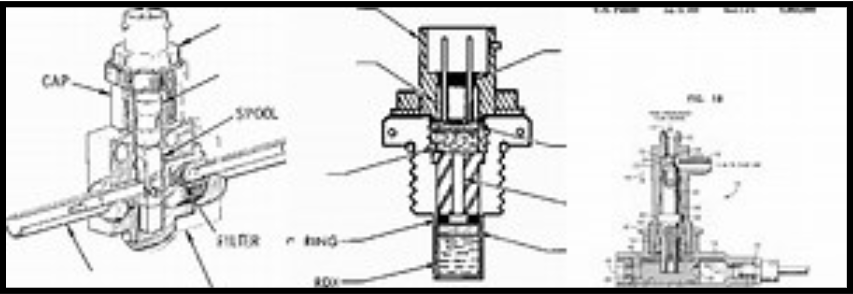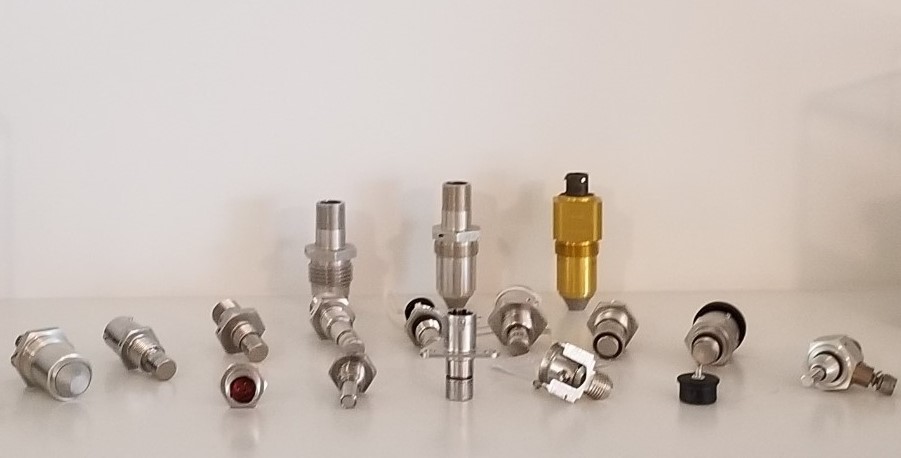EXPLODING BRIDGEWIRE DETONATORS
If you work in the aerospace industry, you know the importance of pyrotechnic devices for your commercial explosives. It’s vital that all explosions occur as safely as possible to protect all individuals involved in these applications. Exploding bridgewire (EBW) detonators are crucial to the combustion of these explosive materials, initiating reliable and efficient detonation reactions.
At AETC, we carry a comprehensive assortment of bridgewire detonators designed with quality and safety in mind. We are Texas’ go-to original equipment manufacturer (OEM) for aerospace pyrotechnic solutions. As such, we hold ourselves to the highest dependability and performance standards with every solution we develop.
What Is a Detonator?
Detonators activate explosive devices. These hermetically sealed components aid in the development of safer and more stable explosions while enduring extreme conditions.
Most of these devices have high activation energy to make explosives safer, preventing them from detonating if accidentally mishandled, dropped or exposed to fire. Though these secondary explosives were safer, they proved more difficult to discharge intentionally. Detonators better facilitate these explosions by producing a small initiating blast to assist the explosion.
Exploding bridgewire detonators are a type of pyrotechnic detonator that uses electric currents to start detonation reactions. These devices promote rapid and precise explosions, making them popular for use in nuclear weapons.
How Do EBW Detonators Work?
EBW detonators have two major components — a thin wire that makes contact with the explosive device and a high-voltage electricity source that provides a fast and consistent starting pulse. When the wire forges a connection across the voltage, it creates a high electric current which instantly melts and vaporizes the wire in as little as a few microseconds. The heat and shock from this reaction then set off the explosive device.
What Are the Different Kinds of Pyrotechnic Detonators?
Professionals can initiate detonators through electrical, chemical or mechanical means, though electrical and mechanical detonations are most common. There are many types of squib detonators on the market, including:
- Ordinary detonators: These are typically ignition-based explosives that use safety fuses to ignite.
- Electrical detonators: Electrical detonators come in three categories — instantaneous electrical detonators, long-period delay detonators and short-period delay detonators.
- Non-electric detonators: These shock tube detonators comprise a hollow plastic tube that generates a firing impulse to the detonator.
- Electronic detonators: Electronic detonators deliver consistent, precise and accurate blasting results for mining, construction and quarrying applications.
Applications of Exploding Bridgewire Detonators
Manufacturers developed exploding bridgewire detonators for various commercial and industrial applications. Some industries that use detonators include:
- Aviation.
- Oil and gas.
- Military.
- Mining.
- Quarrying.
- Construction.
- Nuclear weapons.
When Should You Replace Detonators?
The answer depends on several variables. Consider your applications, how often you use your equipment, how old your detonators are and other factors to estimate your ideal replacement interval. You can contact AECT for more information about switching your detonators.
Purchase Reliable Squib Detonators at AETC Today
If you’re looking for a trusted OEM for bridgewire detonators, choose AETC. We have a long history of developing high-quality explosive and pyrotechnic solutions individually tailored to our clients’ needs. Our team always strives to do the most for our customers. We’ll provide you with high-quality OEM detonator parts, competitive pricing, fast lead times and unbeatable customer care.
Fill out an online form with any questions, and our staff will be in touch with you as soon as possible! Whether you’re looking for a squib detonator or an aircraft detonator cartridge, AETC can help you.


